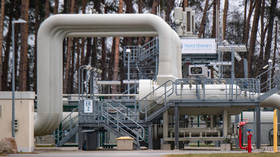EU needs at least three years to replace Russian gas – Fitch

It may take more than three years for the EU to replace Russian gas imports if they are cut off abruptly, international ratings agency Fitch warned in a report published on its website on Tuesday.
“A sudden cessation is not Fitch’s base case, but is a risk. Bulgaria and Poland have already been cut off and supplies to other EU members have been reduced. Supply and infrastructure constraints mean it could take the EU more than three years to offset a full loss of Russian gas supply,” the agency stated.
If Russian supplies cease, EU countries “would face a significant macro shock,” Fitch warns, which includes negative economic growth and higher inflation.
The agency expects Slovakia, Hungary, and the Czech Republic to be the most vulnerable to a sudden shutdown, as they depend on Russian gas the most due to the lack of alternative sources. Poland, Lithuania, and Romania are more or less safe, as they have largely secured alternative supplies or have domestic production.
In April, Bulgaria, Poland, and Finland refused to comply with Russia’s new ruble-based gas payment mechanism, which led to Gazprom cutting off supplies to them. Earlier this month, the state-run energy giant also reduced the volume of gas deliveries through the Nord Stream gas pipeline to Germany by nearly 60%, citing technical issues due to the Ukraine-related sanctions.
These events have sparked fears throughout Europe that Russia could cut off gas completely, prompting European countries to announce emergency measures, such as gas rationing and reviving coal-powered energy plants. Moscow has repeatedly said it will do its utmost to maintain its reputation as a “reliable gas supplier,” and denied plans to cut Europe off entirely.
For more stories on economy & finance visit RT's business section












